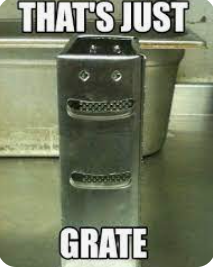
Operation Inspiration
Just before Chanukah, I saw an advertisement for a business that was selling some sort of beef jerky or meat board, and the slogan said, “Chanukah is not just about Latkes anymore!” It rubbed me the wrong way because in recent years, the build-up of hedonistic delights in the name of Chanukah joy has been sadly reminiscent, to me anyway, of exactly what the Yevanim wanted from us.
They wanted us to inculcate in our children from their very births, that our world is not about Hashem but about the material things we can take pleasure in. I understand that the bakeries and cafes are only trying to enhance our Chanukah simcha by creating more and more elaborate sufganiyot designs with everything from chocolate to caramel to brisket, in multiple layers and with accoutrements and add-ons that would make a vacuum cleaner salesman blush. Well, they want to enhance our simcha and their bottom lines, but is this really what Chanukah is about?
It’s supposed to be about the clear light of the candles; the oil that managed to burn even more economically than usual, to show that Hashem provides for us and loves us. It’s supposed to be a Yom Tov of praise and song, not of feasting and parties. But I don’t mean to be a scrooge about it. Let people have their fun and recall Hashem’s miracles in their lives (like being able to afford some of the Chanukah delicacies that are out there.) But seriously, was Chanukah ever really just about the Latkes?
However, when I thought about it, though in some countries, like Eretz Yisrael, the go-to food if sufganiyot, jelly-filled fried doughnuts, in most of Europe, Latkes were the staple. I reflected on that for a bit, and came to some insights.
Now, as you may recall, the jelly doughnuts have a deeper meaning than just being sweet and tasty. When you eat a doughnut, you make an Al HaMichya afterwards. That is the only bracha achrona which mentions the mizbeiach, the altar, and asks Hashem for His mercy. R’ Shlomo Zalman Auerbach zt”l explains that when the Chashmonaim came into the Bais HaMikdash, they could not purify the stones of the altar, so they had to bury them. By eating doughnuts, we get to daven for the Bais HaMikdash and its mizbeiach.
The Gemara also tells us that since the destruction of Yerushalayim, fruit lost most of its taste, hence the introduction of fruit jelly. (No word on whether lotus cookie butter was affected by the Bais HaMikdash.) But what about Latkes? What is the significance there?
I realized that it was a food of Galus; eaten in countries that sustained millennia of pogroms and attacks and all sorts of atrocities. How are Latkes made? You take potatoes out of their safe spot in the ground. Their skins are removed and they’re grated into pieces or maybe even a mush. Then they are placed into boiling oil until they develop a deep crust. And you know what? They’re delicious.
The parallel to me was astounding. We, as Jews, have been hated, bashed, beaten, and worse. The nations of the world seek to shred us out of existence. They tear us apart, tell us we’re dirty, and subject us to the fire of their hatred. And what happens? We stick together. We take their abuse and allow it to transform us into something golden and crispy, a delicacy that has no equal.
We ARE latke people, and Chanukah is precisely all about the Latkes. It’s about remembering that no matter what the nations of the world try to do to us, we can rise up again and become better than before. We can be victorious not by winning wars or killing enemies, but by not letting them destroy our souls or our desire to serve Hashem. We remind ourselves and our families that a little bit of light drives off a lot of darkness, and that is our brand of victory.
The message of the Latke isn’t merely that it’s fried in oil, just as the menorah was lit with olive oil. The message is that we can take that oil in whatever form it comes, and create light with it! Whether it’s a light you can see or one you can taste, each Chanukah we testify that we refuse to be downtrodden and beaten. No matter what they try to do to us, we can and will use it to improve ourselves and come out of the darkness changed for the better.
We remain undaunted after all these centuries. The lights of Chanukah still burn in our homes and souls, even as the heartburn does in our chests. The Latkes remind us that we can take whatever they can dish out and find a way to serve Hashem with it – and that is perhaps the gratest… that is… greatest, miracle of all.
© 2022 – All Rights Reserved
Did you enjoy this column? Feedback is welcome and appreciated. E-mail info@JewishSpeechWriter.com to share your thoughts. You never know when you may be the lamp that enlightens someone else.